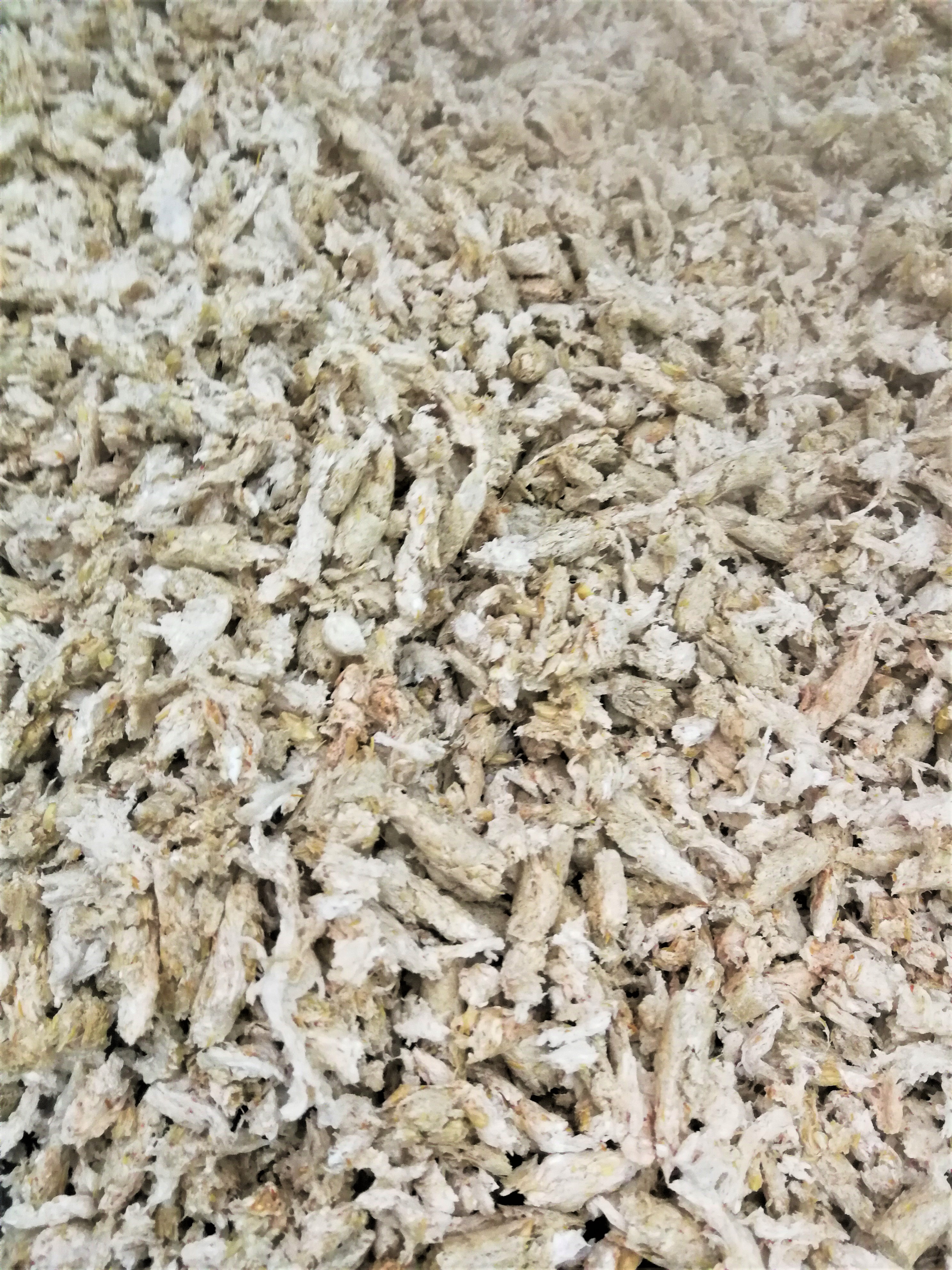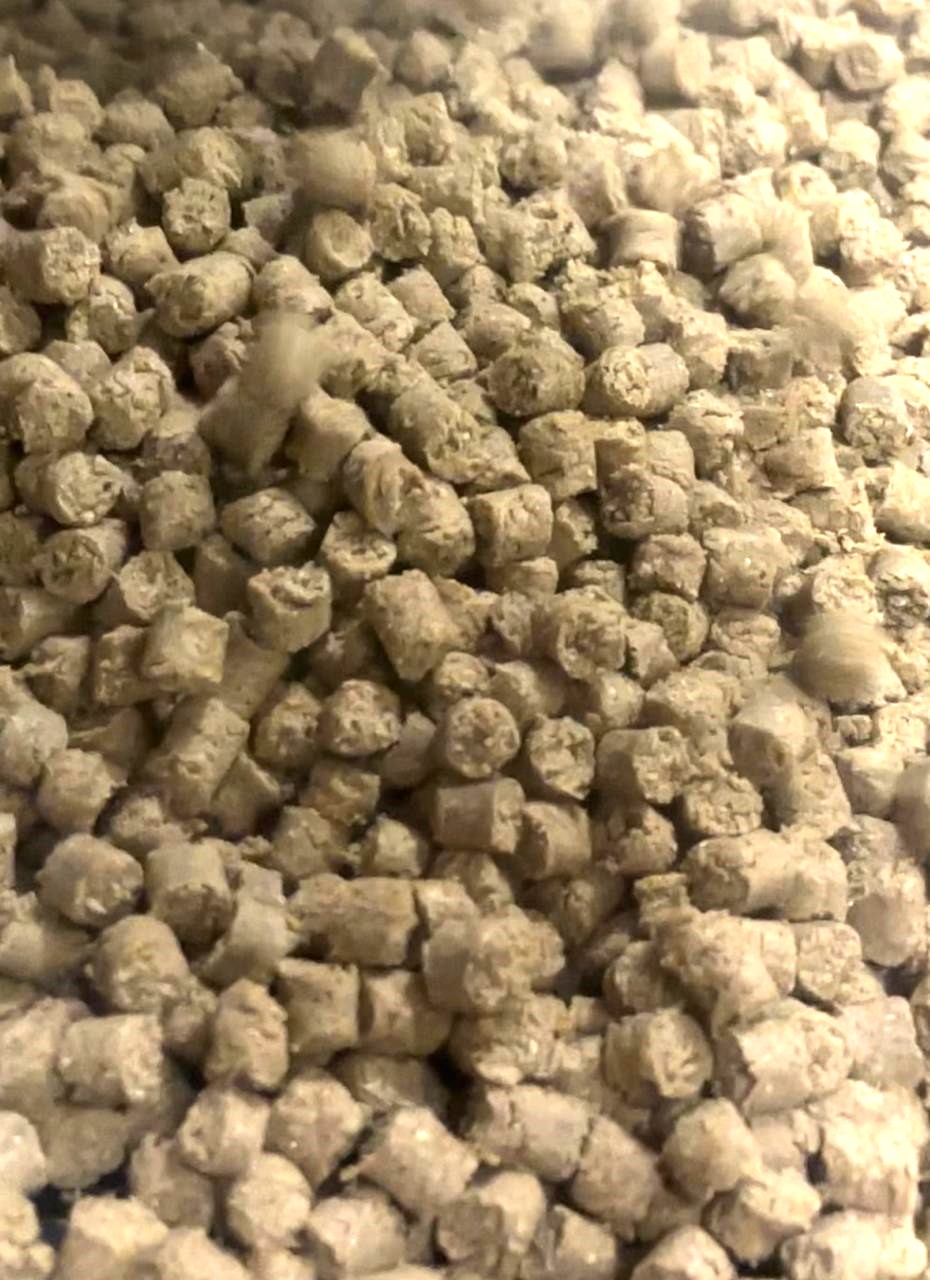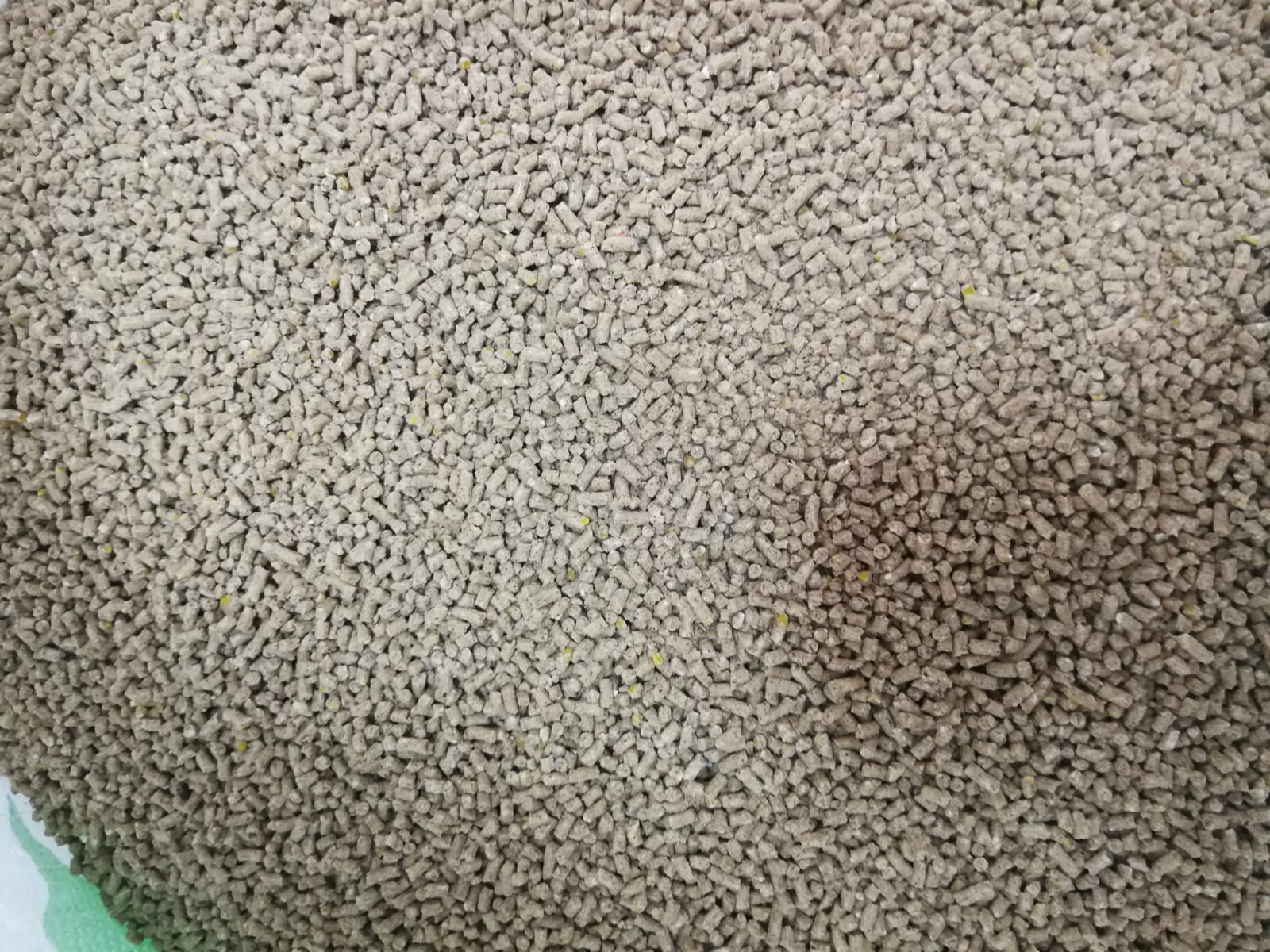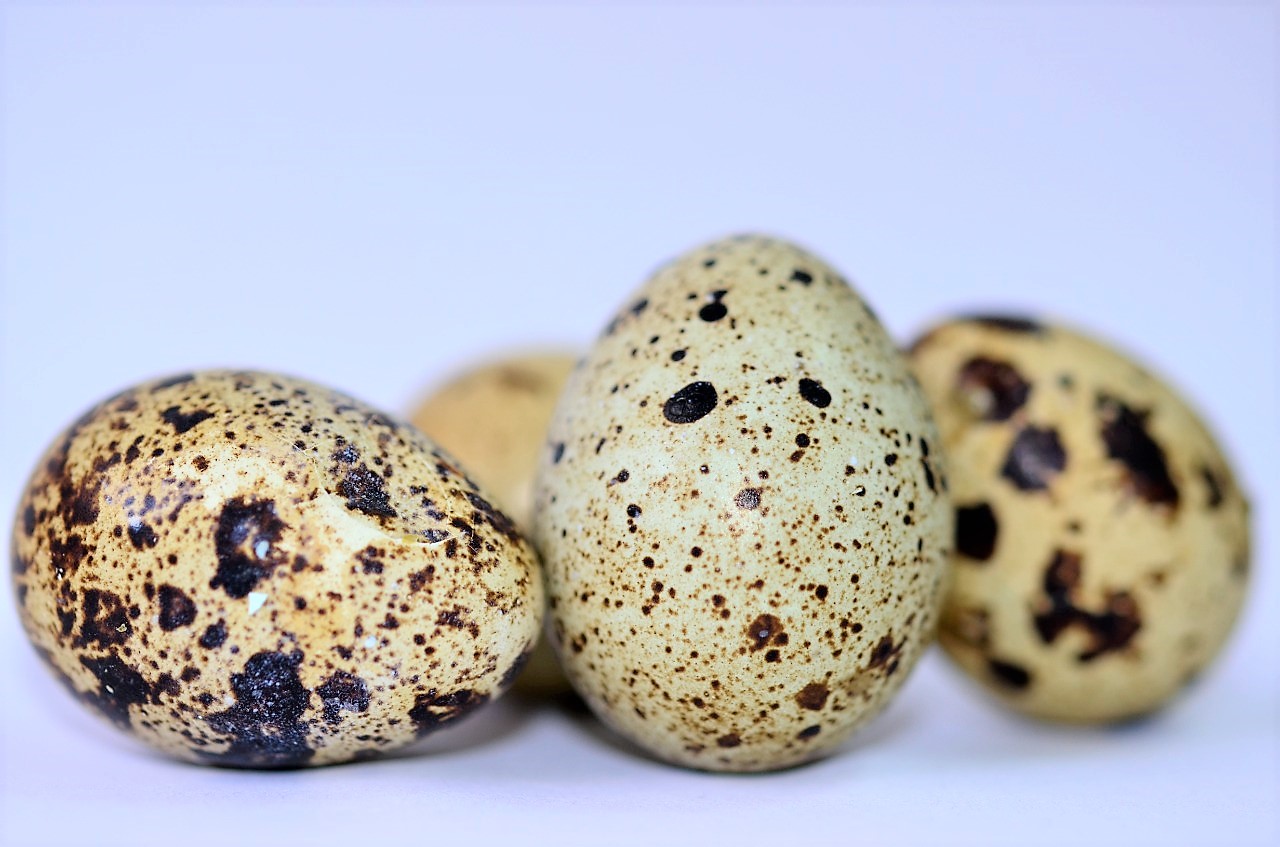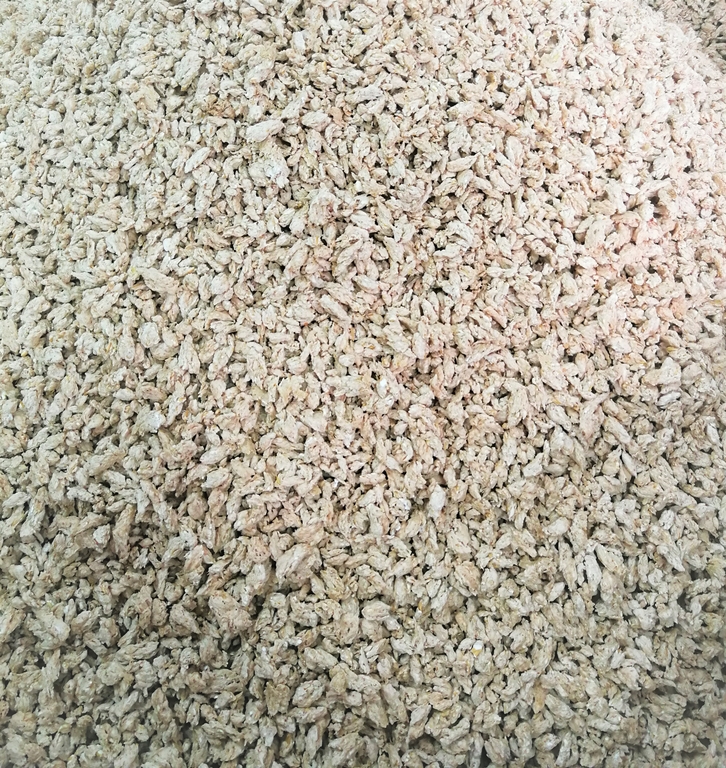
– is a new generation of feed produced by the barothermal method, which destroys pathogenic microflora, including pathogens of mold fungi and their toxins. When extruded, the content of simple sugars increases by 2 times, disaccharides – by 20 times. The efficiency of feeding animals is increased by 50%. 1 kg of extrudate = 2.76 kg FU (feed units of oats). Extruded feeds are indispensable for growing young animals, as they significantly reduce the percentage of their death from gastrointestinal diseases and pathogens that have penetrated with the feed.
Composition: extrudate of barley, wheat and oats.
Advantages:
|
Indicator |
Resource-saving eco-feed |
Granulated grain |
|
Digestibility |
90-95% due to protein denaturation (5-10% of it turns into manure) |
35% (65% of it turns into manure) |
|
The digestibility of starch |
90% due to splitting into sugars and dextrins in the extrusion process |
20% |
|
Contamination (mold fungi, mycotoxins, microorganisms) |
none |
present |
|
Antinutrients (substances that interfere with the process of assimilation of nutrients) |
destroyed |
present |
|
High feed palatability |
due to the taste qualities of the extrudate, which has a very pleasant bread taste and aroma |
- |
|
The duration of storage |
sterile, has low humidity |
subject to mold |
|
Cost-effectiveness |
it is spent twice less |
- |
|
Absorbent properties |
neutralizes various intestinal infections and irritations (prevention of gastrointestinal disorders) |
- |
The introduction of extruded feed into the diet of animals allows:
- increasing the survival rate of young animals to 95%;
- increasing milk yield in cows by 20-40%;
- increasing egg production in poultry by 30-40%, increasing egg size by 15-20%;
- increasing the daily weight gain in pigs, cattle, and small cattle by 15-30% and reducing the growing period by 2 months;
- feeding extruded feed reduces animal feed consumption by 40%, reduces the percentage of deaths of animals and birds from gastrointestinal infections up to two times;
- increasing the energy content of the diet by 10-15 %.
Feeding standards
|
Type of animal |
Weight, kg |
Eco-feed weight, kg / day |
Price: 1 kg – 140 tenge (without delivery)
|
|
Cattle |
up to 100 |
0.5 |
|
|
100-200 |
1.5 |
||
|
200-300 |
2.1 |
||
|
more than 300 |
3.8 |
||
|
Small cattle |
- |
0.4-0.6 |
|
|
Pigs |
- |
2.1 |
|
|
Poultry |
up to 0.3 |
0.053 |
|
|
0.3-0.5 |
0.060 |
||
|
0.5-1.0 |
0.080 |
||
|
1.0-2.0 |
0.128 |
||
|
more than 2.0 |
0.140 |
